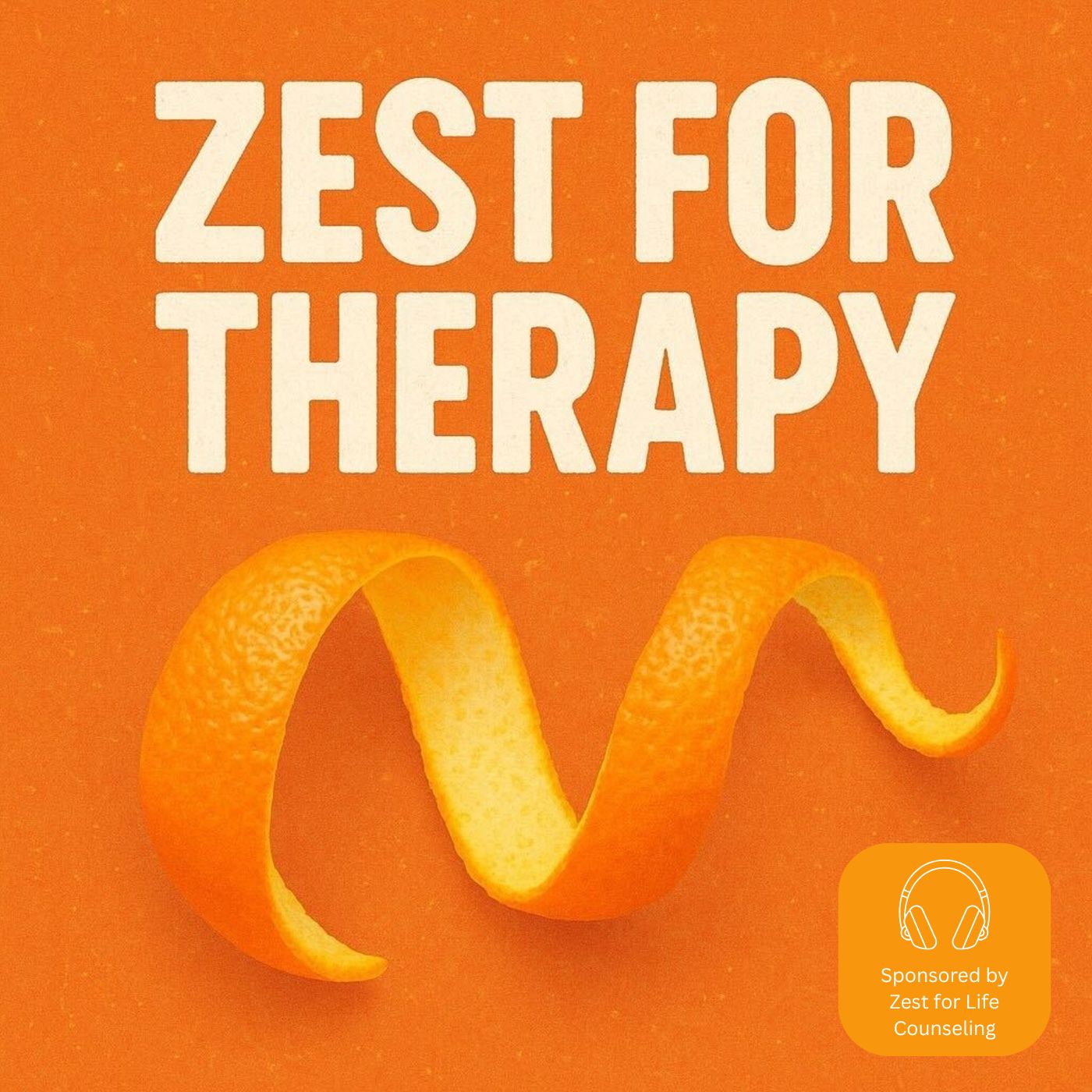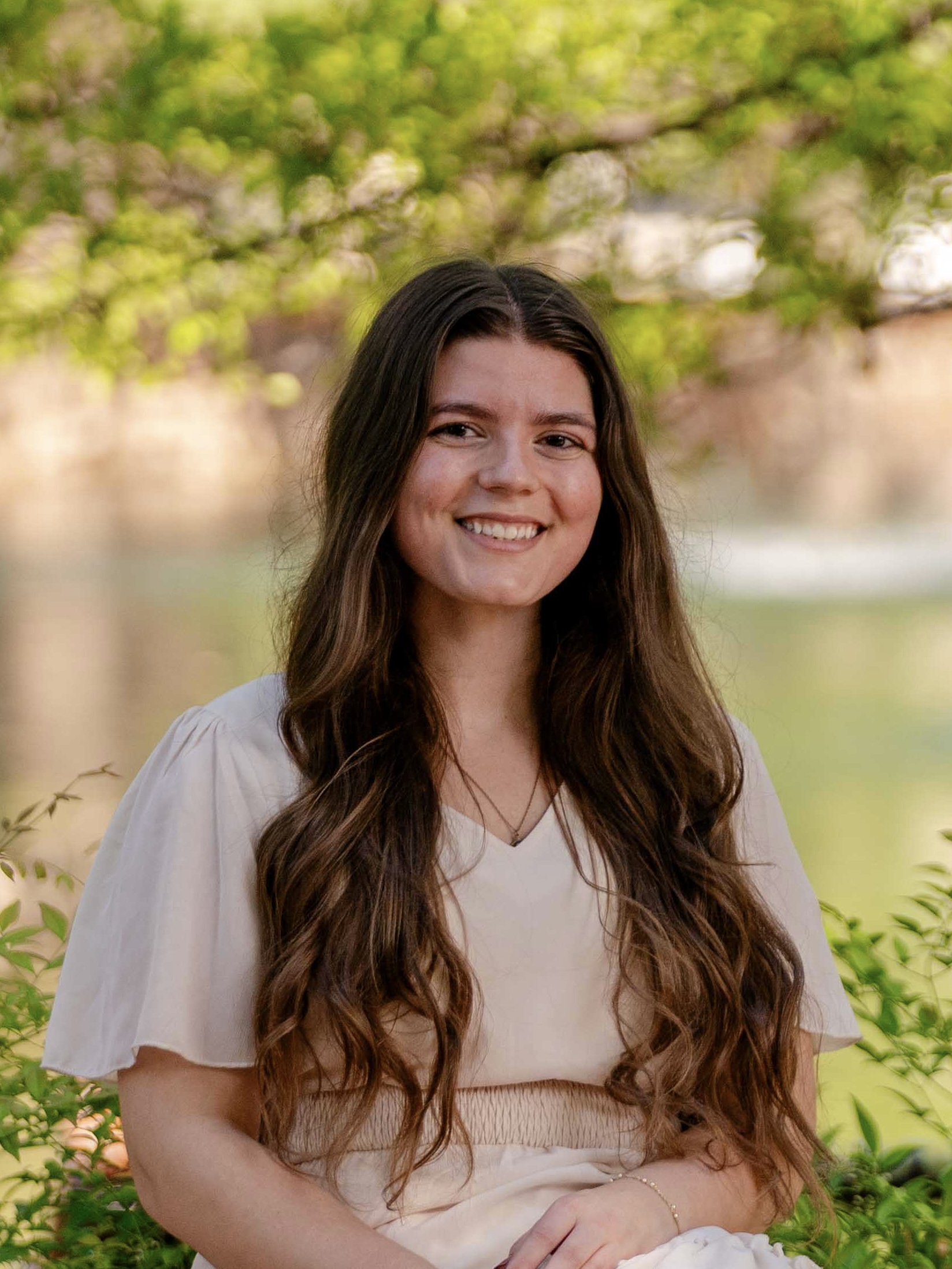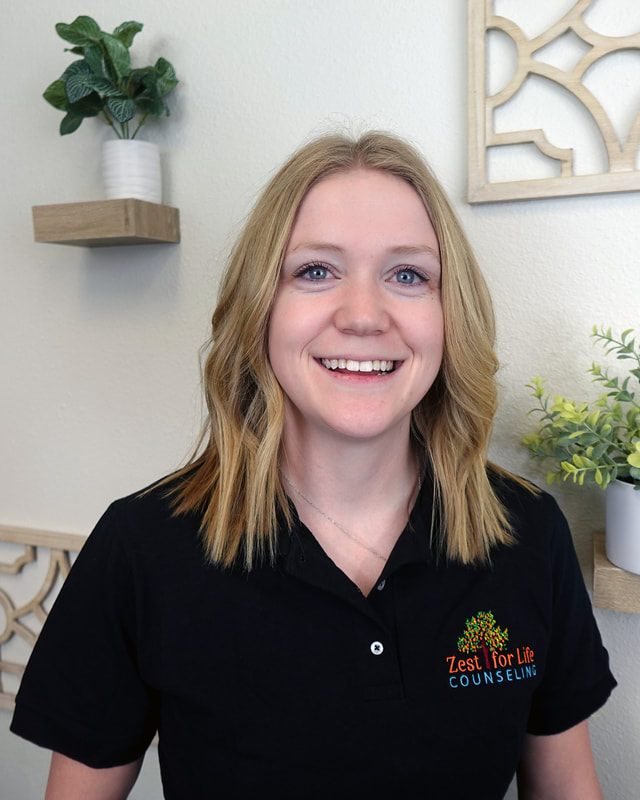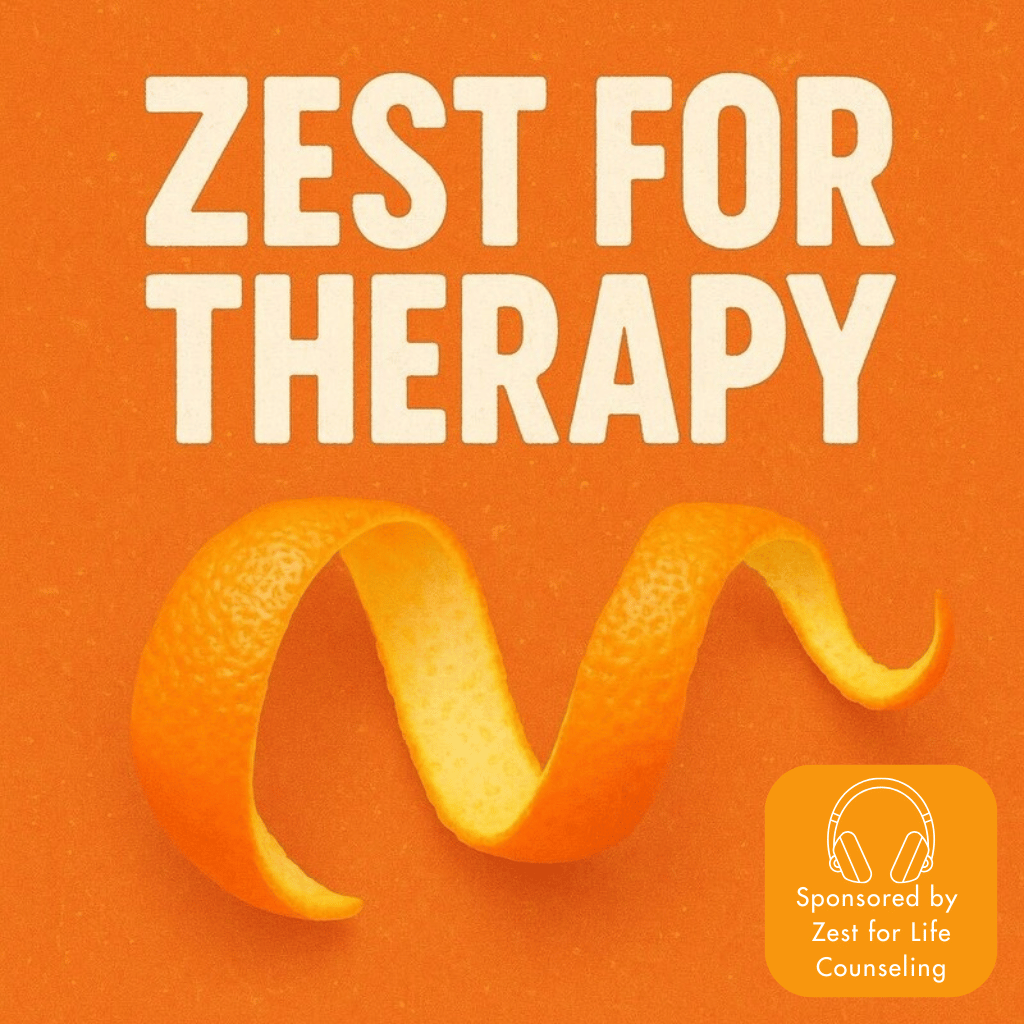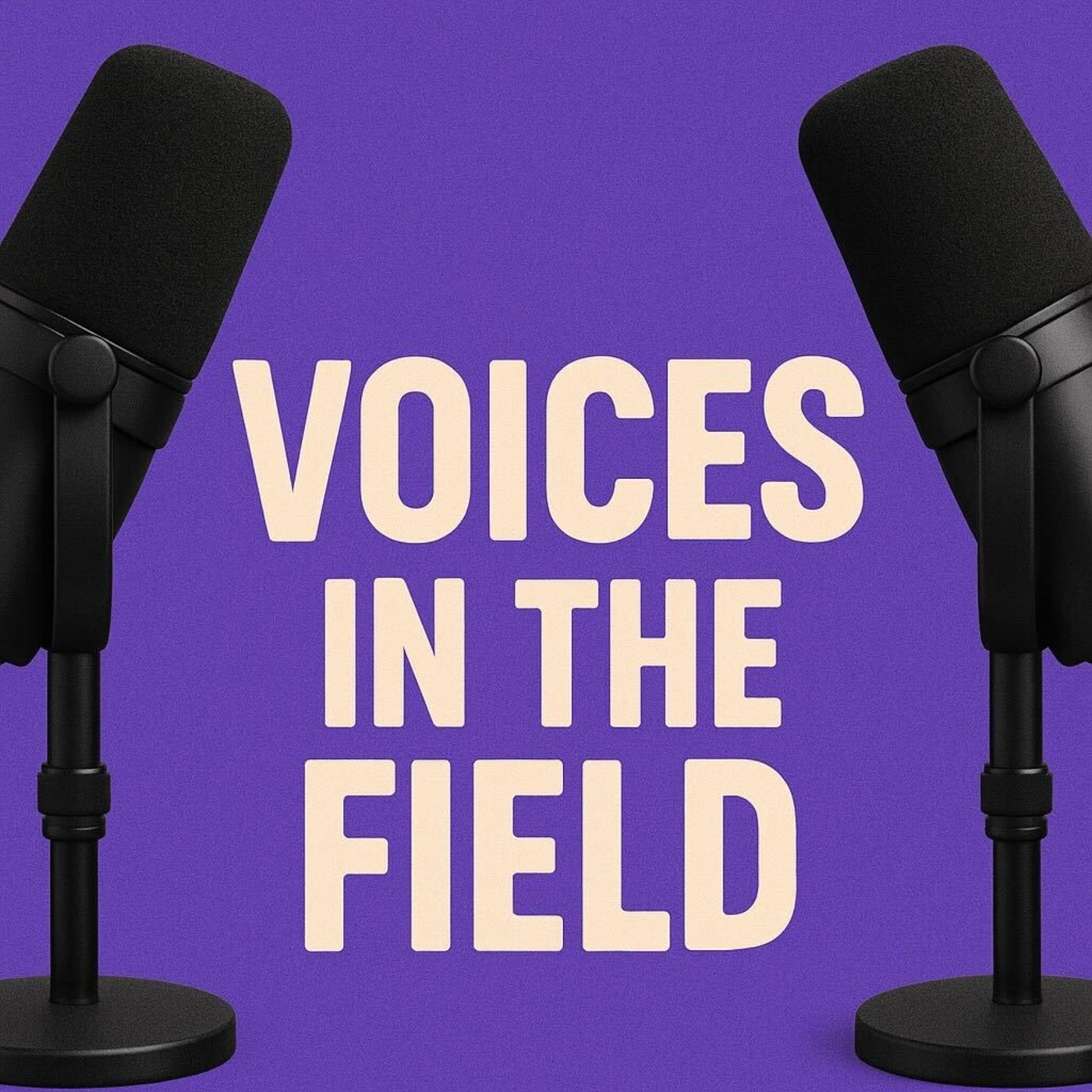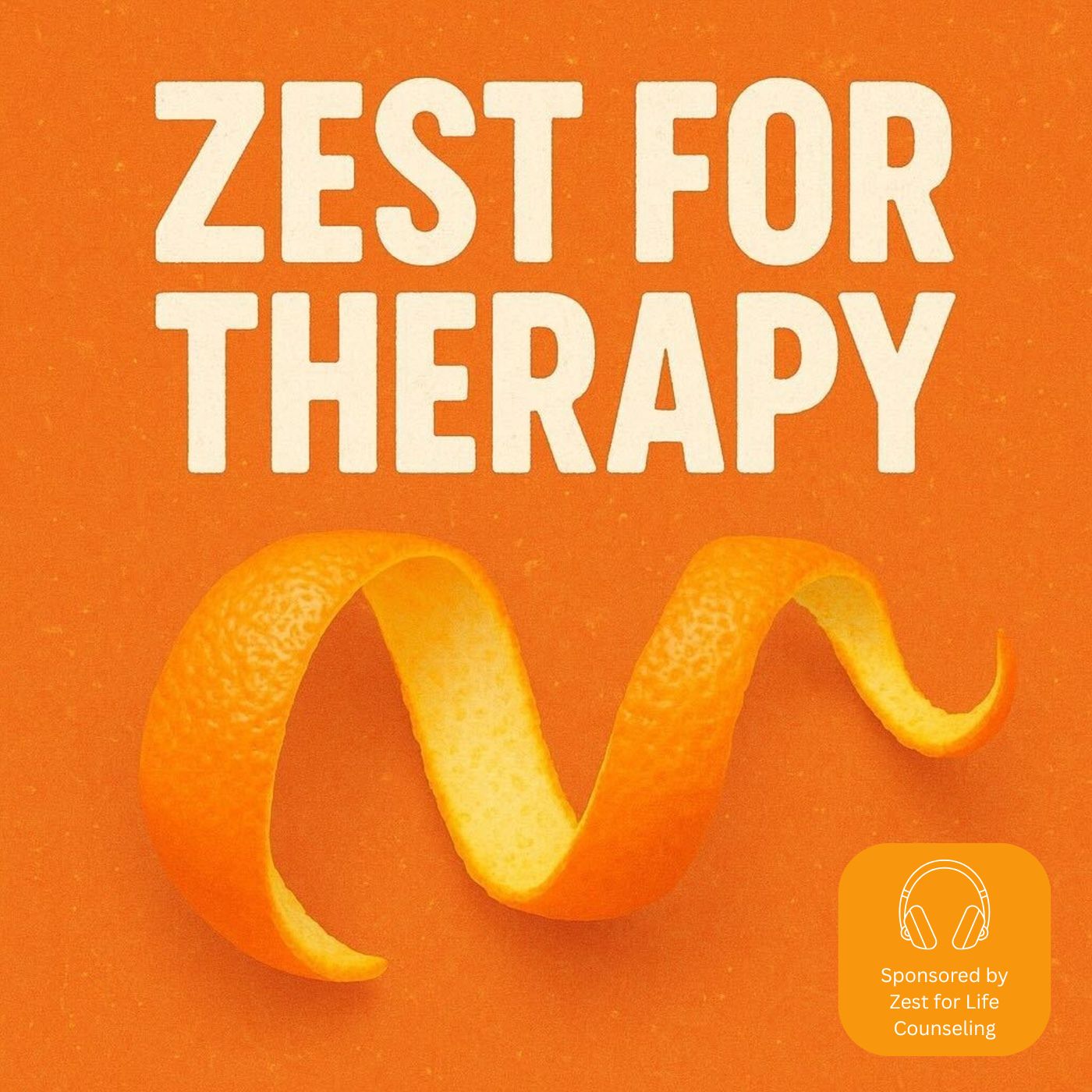Episode Transcript
[00:00:00] Courtney: Welcome to the Zest for Therapy podcast, optimizing your growth as a new therapist. Sponsored by Zest for Life Counseling, we are podcasts by therapists for therapists. Whether you're an intern or student therapist, a provisionally licensed therapist, or just feel new, regardless of where you're at with the licensing process, we know being a new therapist can be overwhelming.
[00:00:21] Celeste: As a disclaimer, while we are therapists, we are not your therapists. This podcast is intended for informational entertainment purposes only. It does not constitute therapy, clinical supervision, or medical advice. Opinions expressed are our own and subject to change as research evolves. We do our best, but we're human and that means we make mistakes.
[00:00:40] Cole: Our goal at Zest for Therapy is to support new therapists by normalizing your experience, filling your toolbox, and keeping you research informed. We want to build your confidence and competence and ultimately help you feel less alone.
[00:00:54] Celeste: Okay, so to get us started with introductions. My name is Celeste Webster. I am a social worker. Currently my master's program online at University of Kentucky. I am currently practicing as an intern therapist and I will graduate at the end of this year and could not be more grateful as well as excited for grad school phase of my life to come to a close.
[00:01:15] Courtney: I'm Courtney. I'm an associate marriage and family therapist. I graduated from Oklahoma State University, their marriage and family therapy program last year. I passed my national exam and I'm working on completing my hours for licensure.
I work with families of teens with trauma and mood and anxiety disorders and my ultimate goal is to eventually be involved in all aspects of the MST field, doing therapy, research, supervision, and being involved in higher education.
[00:01:43] Cole: I'm Cole and I'm a social worker as well. Soon to graduate with my master's in social work from the University of Kentucky. As a current intern, I've been jumping into clinical work and learning how to navigate early career challenges as a mental health therapist. And finish finish in grad school. I'm stoked to share my experiences with everyone listening. We are your co hosts, therapists who work together and grow together.
[00:02:03] Courtney: Okay, Celeste, start us off. Why did you decide to become a therapist and why did you want to be a part of this podcast?
[00:02:10] Celeste: Oh boy. So I was a student in college that changed their mind at least 10 times and changed my degree at least 5. So my ultimate decision for becoming a therapist can be boiled down to three main parts for me. The first is that I was in the medical field for a few years and realized that the part I liked most was meeting people and helping them out. And I was the one to handle the dysregulated patients because honestly, I loved it, which was weird for most people.
But my decision was also part loving service, and my time as a case manager and substance use really helped me realize that I love helping individuals to see the strengths and the resources that they already have and to help them fill in gaps with skills and resources that they don't have and to see people turn it all around for the better. The last part that contributes to why I chose to become a therapist is my own life.
Navigating my own life changes and plot twists with the hope to turn around and help others where I felt I could have used it in my life, I guess for the podcast. Honestly, I have experienced burnout as a bachelor's level student and a master's level student in different ways, in different seasons. This work is hard and finding community is huge as a human period.
We are social beings and we need support and community to thrive. So this is true of therapists too. We're not immune and we're not alone. This podcast will help me as much as it will help our listeners. At least that's our hope.
What about you, Cole? Why a therapist? Why this podcast?
[00:03:32] Cole: Yeah, so to start off being a therapist, so I've been told a lot in my life, I'm pretty indecisive. Something I was sure about was in middle school, I knew that I was going to no more school than a bachelor's degree, and now I'm currently in a master's program. So that kind of proves their point. Everyone that's told me that I've learned from my own experience in life that people do really well when other people help them connect the dots in their lives. We're not good at doing it ourselves in our own lives. And so something that my wife noticed whenever I would struggle or have a bad day is that things would get better when I would talk to someone about it. Especially if I was just going to hang out with some guy friends and just play some games, play some golf and just talk that I'd come home feeling empowered is the way she put it. And so when I was trying to decide what to do for school, she recommended why not look into mental health services and therapy? So being indecisive social work is a very generalized practice. Lots of jobs can come from that.
[00:04:35] Courtney: It's a good one. There's a lot of options with social work.
[00:04:38] Celeste: You can always change your mind.
[00:04:39] Courtney: Yeah, so true.
[00:04:41] Cole: So social work was the easiest choice out of the mental health professions and degrees to get. So I chose that in case my mind changes in the future. But so far, I've loved being a therapist and helping people navigate their own lives. And for the podcast, I had never done anything like it before, and I was given the opportunity by Courtney, approached me about it, and now I'm here, we're exploring it, and it's been fun so far.
[00:05:05] Courtney: Yeah.
[00:05:05] Cole: Let's hear from you. Courtney, what about you?
[00:05:09] Courtney: Great question. So as far as therapy, I decided on therapy pretty early on.
I knew I wanted to do something in the social sciences. I had been told that I would be a good therapist a lot growing up and just with a lot of my mentors and professors. But I was like, I feel like I should make sure that that's, like, the right thing for me, not just because I would be good at it. So it's kind of a Goldilocks situation for me. Like, I tried pretty much every social science my little university had to offer, and nothing fit quite right. Like, I loved psychology, but I felt like it was too narrow. Like, I felt like it didn't include a lot of bigger systems. And then I was like, okay, well, how about sociology? And I was like, okay, this is too big. Like, this is too big for what I want to be doing. And I tried a couple other things that just didn't fit quite right. And my academic advisor, she was like, hey, actually, I was like, what do I do? Like, I know social science is for me, but I don't like any of these. Or I do, but they're just not. Not quite right. And she was like, I actually think you should try family life and human development. And my first response was, no, Like, I don't understand what you can do with that. Like, I was a very career oriented person and I. I didn't know anything about family life and human development, just that there's a lot of people growing up where I grew up that would take those classes to improve their parenting skills, which I think is a great thing to do, But I didn't understand what I could do with that degree outside of that. And she was like, actually, no. Like, I think this is what you're looking for. Like, there's lots of things you can do in this field, especially if you go on to grad school. So I was like, well, I guess I'm changing my major. Like, I hope it works because this is the last one.
And so after that, that next semester, I was introduced to family life and human development, to marriage and family therapy and systems theory. And honestly, it was perfect. Like it gave me a label for how I already saw the world and the things I already valued. And um. So even when I'm seeing clients now, like, I love seeing them in the context of their relationships in their communities and these bigger systems that they're a part of, as well as who they are and who they want to become. So even when I'm seeing clients individually, I'm still keeping that systemic perspective in mind. And I think that's one of the strengths of being an MFT that I really resonated with and still do.
So going back to what Celeste talked about, we as therapists do not exist in a vacuum. We have our own systems, our own relationships, communities and values. And it's important to remember that you're a person too. You're not just what you do for work. So part of my why for starting the podcast Being a part of the podcast is to make some of the hard parts about being a therapist a little bit easier because you're not doing it alone. And for therapists to have a place to go where they can hear about research, learn about effective self care, relate to other therapists and engage in self work in a meaningful way that maybe does not take as much time as doing your own research, deep dive or finding new therapists in your community still do those things. But if you are finding yourself burnt out and struggling, listening to a podcast for a few minutes is better than nothing. And honestly, we can respect that and relate to that.
[00:08:24] Cole: Oh yeah, for sure, for sure.
So when it comes to the Zest for Therapy podcast, we have a slew of different series that we'll have in this podcast. So that first, the first one we have is the Research tldr and this is where we'll dive into most recent research about different issues in the practice of therapy, including diagnoses, presenting problems and self of the therapist issues. Second one is our Voices in the Field series. We'll host Q&As with new and seasoned therapists to learn from their expertise, specialties and experiences. And the last one is models and how to use them. And this is where we'll give you an overview of models and interventions in the field and help you implement evidence based practices. And along the way we'll sprinkle in some fun bonus episodes.
[00:09:09] Celeste: With all this, we kind of hope to just create a supportive community and be a part of it because we need it to.
So please join us and we know that there are tools to help you as a therapist in your work to overcome burnout, overwhelm and stagnation, and our goal is to share those with you.
[00:09:24] Courtney: Yeah. So stay tuned. Stay involved. We would love to take suggestions for topics or models that you want us to go over or guests you want to hear from.
So stay tuned for that. We'd love to get some feedback on things our listeners want to hear about, so please join us for our next episode on Burnout Outro Music. Welcome to the Zest for Therapy podcast.
